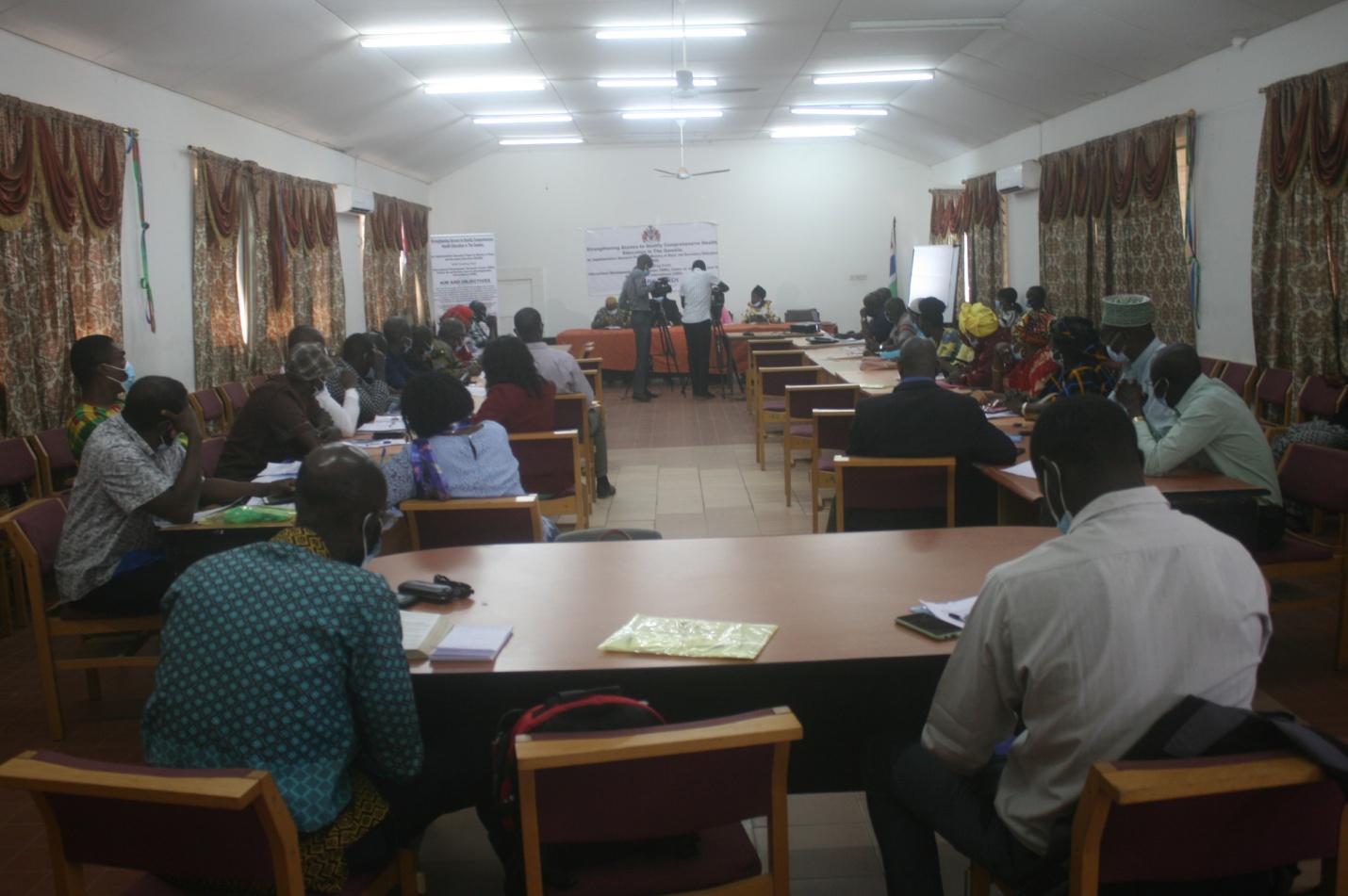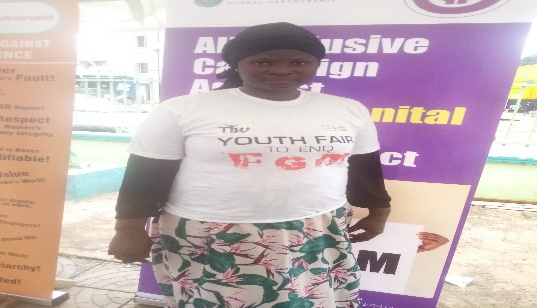By Yunus S Saliu
Taking into consideration the development of a curriculum framework on CSE, the Curriculum Research, Evolution and Development Directorate (CREDD) of Ministry of Basic and Secondary Education (MoBSE) in conjunction with school principals Tuesday converged at the Educational Regional Directorate, Region 1 office, New Jewshwang to review the study findings on a project – Strengthening Access to Quality Comprehensive Health Education in The Gambia.
The overall aim of the project is to understand the underlying factors that affect the implementation of comprehensive health education (CHE) for adolescents in-and-out of school.
Strengthening Access to Quality Comprehensive Health Education in The Gambia is an implementation research project conducted by Ministry of Basic and Secondary Education and funded by International Development Research Center (IDRC), Canada.
Among other aims is to design and implement relevant school and community-based programs that will include teacher and community-based trainings on sexuality education and discussion sessions with adolescents and youth networks to strengthen access to quality comprehensive health education (CHE), information and services among in-and-out of schools adolescents in Western Region 1.
Mr Ousman Bah, director of Education Region 1 disclosed that in the past, the country struggled for a comprehensive health education as several initiatives were carried out. Those initiatives included the population family life education (POP/FLE) “whereby materials were developed, teachers were trained and it was put into the school system,” he noted.
He went further that sometimes back they have the comprehensive sexuality education “which has led to this one, CHE. All these are intervention because these are reproductive issues that are very important to the public, particularly boys and girls in our school system in The Gambia.”
Mrs Fatou Dally Bittaye, speaking on behalf of Momodou Jeng, director of CREDD, dilated on findings from the research. He said the research was conducted few months ago whereby some of the principals participated while some of the schools in Region 1 were used (for the research) in collecting data and information.
She harped on importance of their inclusion as regarding sharing of the findings and outcome of the study for better implementation. Among other things, she said the Ministry wants the project to strengthen the work MoBSE is doing with the principal investigator and team.
Sharing the findings with school principals, the principal investigator of the project for Strengthening Access to Quality Comprehensive Health Education for in-and-out of School Adolescents in Region I, Mrs Phebian Ina Grant-Sagnia explained that methodological approach for the research was divided into phases.
On quantitative study findings, she said the survey was conducted in 43 schools “most of the schools surveyed are public – 53.49% and mixed schools – 69.77%.”
The qualitative study findings, according to her, focus group discussions with adolescent boys and girls found that adolescent communication about sexual and reproductive health issues including discussions on menstruation, prevention of pregnancy and contraceptive use was limited.
She went on that reasons or factors that were reported as responsible for the limited adolescent-parent communication about sexual and reproductive health issues were mostly cultural, due to shame and shyness but also to the competing responsibilities of parents as breadwinners.
And also, she stated, that prevention of pregnancy and not STIs mostly drives the use of condoms among boys and girls because pregnancy out-of-wedlock is frown upon and deemed socially unacceptable.
Among outlined challenges to implementing of comprehensive health education for adolescents in and out-of-school as reported by staff of NGOs, civil society organizations and school authorities included program-related challenges and curriculum implementation-related challenges.
At the intervention phase of the project, she said, specific educational and informational activities to empower children and adolescents to respond to their sexual health care needs will be carried out. And also, will increase community’s understanding and readiness to support adolescents and youth in comprehensive sexual education (CHE).




